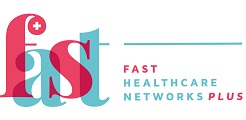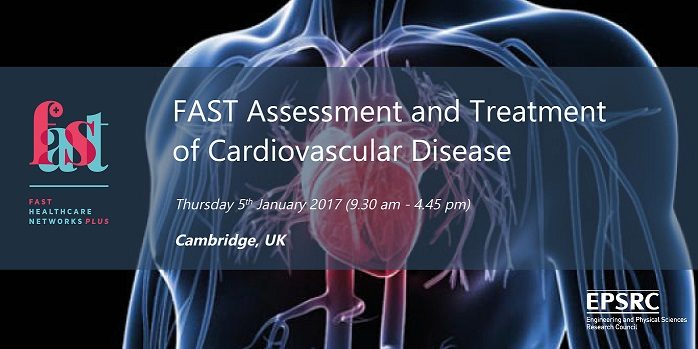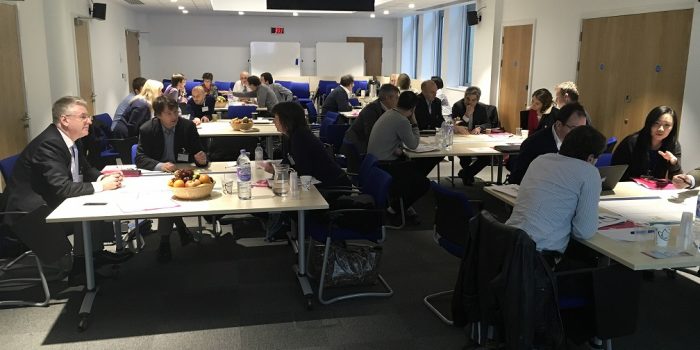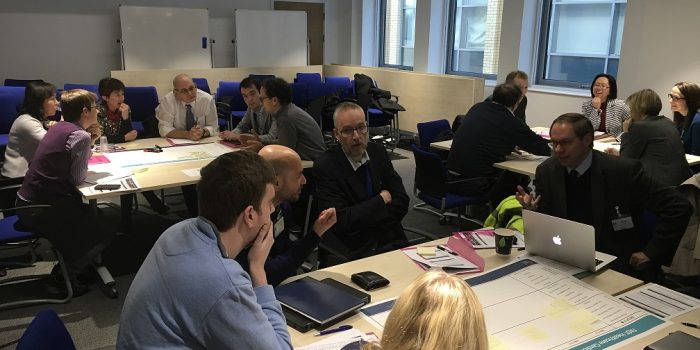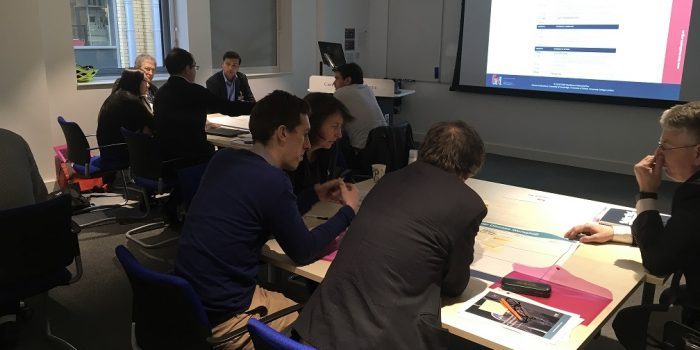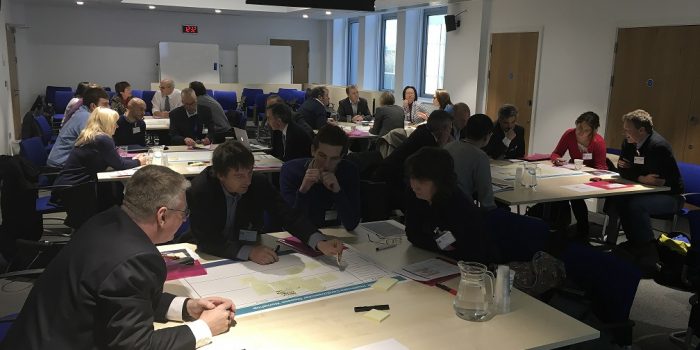About this Workshop
A key pressure on the NHS is how long-term conditions, like cardiovascular disease (CVD), are treated. Between 2010 and 2020, it is expected that the number of people in England suffering from cardiovascular disease will increase by 59,000. Around one third of the difference in life expectancy between the most affluent and deprived areas in the UK is believed to be attributable to cardiovascular disease. The diversity of entry points to the healthcare system, the personalised nature of treatment and the impact on lifestyle choices means that this chronic condition is highly suited to a systems-engineered treatment process.
The Roadmap
This Workshop provided a forum for the development of a roadmap for engineering and physical sciences (EPS) research to improve the assessment and treatment pathways for cardiovascular disease. Speakers from the clinical, engineering and industrial communities gave their perspectives on the clinical requirements that should be driving the development of these pathways, the technical opportunities that lie ahead and the barriers that exist which have to be overcome for eventual adoption in the public healthcare system.
You can download the Roadmap for EPS Research into CVD Assessment and Treatment as a pdf document.
The Roadmap identifies the clinical need to provide safe, accurate, rapid and seamless care across the healthcare system in a way that is efficient and cost-effective through the optimised use of staff. This leads to two research fields.
One research field aims to improve assessment and treatment through advancement of tests (biomarkers, ECGs, ultrasound, etc.), methods for long-term monitoring and enhanced early detection of cardiovascular disease. In addition, there should be improved profiling and assessment of patients and optimised allocation of staff to delivering care. This is enabled by the development of wearable devices, algorithms for fusion, analysis and visualisation of the complex data that they produce and artificial intelligence systems for assessment. Systems-based engineering analysis is also required for implementation. This relies on the development of flexible and large-area electronics, sensor and imaging technologies and high energy density power storage and energy harvesting devices.
The second research field leads to the realisation of smart stents and artificial hearts. This requires the development of remote surgery systems and 3D printed medical devices. These in turn rely on research into robotics, nanorobotics, 3D printing techniques and 3D bio-compatible materials.
The outcomes of such a research agenda would be the optimised use of specialist and generalist-led cardiovascular disease assessment and treatment; fewer referrals between care providers and a reduced number of hospital re-admissions following discharge; better long-term treatment which is more personalised; and fast triage of individuals with cardiovascular disease into one of the seven treatment pathways.
Call for Proposals
To accompany the publication of the Roadmap, the FAST Healthcare Network has issued a FAST Cardiovascular Proposal Call for pilot projects which initiate new research collaborations to address the roadmap. Proposals to the Call must include at least one person in the research team who has attended this Workshop. Attendees have been e-mailed details of the application process. If you attended the Workshop, but have not received this information, then please e-mail Professor Andrew Flewitt. The deadline for receipt of completed FAST Proposal Application Forms is 5:00pm on Wednesday, 3rd May 2017.
Workshop Structure
The Workshop was divided into three sessions covering each of: the clinical challenges to the rapid assessment of CVD and its often long-term treatment pathway; the technical response to the clinical challenge; the barriers to adoption of new technology and processes.
Each session started with some short talks and was followed by structured roadmapping into which all participants were expected to contribute.
View the workshop structure (PDF).
Speakers
Prof Martin Bennett, British Heart Foundation, Professor of Cardiovascular Sciences, Department of Medicine, Cambridge University
Prof John Clarkson, Director of the Cambridge Engineering Design Centre, Cambridge University
Paul Flynn, Clinical Director, Addenbrooke's Hospital, Cambridge
Dr Luis Garcia-Gancedo, Director in Sensor Technology at GlaxoSmithKline (GSK)
Debbie Morgan, Programme Director, Addenbrooke's Hospital, Cambridge
Dr Thomas Stone, Clinical Scientist, Cambridge University Hospitals NHS Foundation Trust
Prof Lionel Tarassenko, Founder Director of Institute of Biomedical Engineering, Head of Department of Engineering Science, Oxford University
Prof Paul White, Consultant Clinical Scientist and Head of Clinical Engineering at Cambridge University Hospitals NHS Foundation Trust
Workshop Attendees
We invited participants from across the clinical, the academic engineering and physical sciences and industrial communities to this Workshop.
Who organised this Workshop?
The Workshop was put together by Professor Andrew Flewitt, Engineering Department, Cambridge University and Principal Investigator of the EPSRC Fast Assessment and Treatment NetworksPlus.
